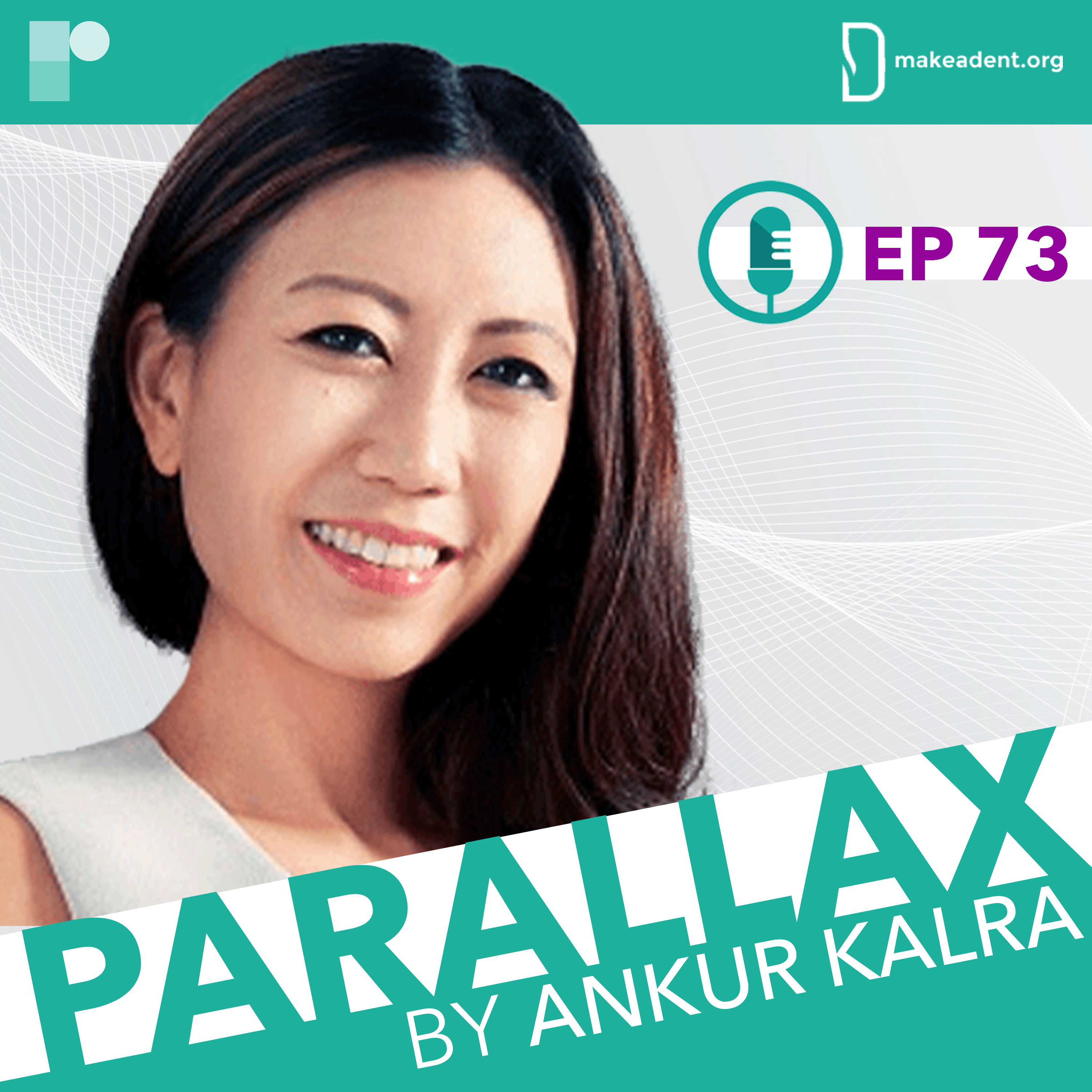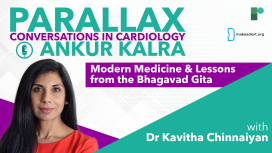
At the beginning of her career, Prof Lam thought that being able to multi-task is one of her strengths. After many accomplishments as a cardiologist and a researcher, she believes that there is more power in focus and being fully present.
This week’s guest on Parallax is Professor Carolyn Lam, Senior Consultant and Director of Women's Heart Health at the National Heart Centre Singapore, Professor at the Duke-National University of Singapore and co-founder of Us2.AI, an award-winning medtech start-up as well as the host of the Circulation on the Run podcast.
In this refreshing and spiritual episode Carolyn reflects on her journey and the decisions and mentors that shaped her career as a heart failure specialist, trialist and as a public speaker. Ankur and Carolyn dive into the question whether being balanced is what we should be all aiming for. Ankur asks Carolyn about her work as a co-founder of Us2.ai, a start-up dedicated to the automation of the fight against heart disease by applying AI to echocardiography.
What makes Prof Carolyn Lam tick? What does spirituality and faith mean to Prof Lam? What are her thoughts on the role of AI in the democratization of medicine? What is her advice to our listeners?
Questions and comments can be sent to “podcast@radciffe-group.com” and may be answered by Ankur in the next episode. Guest, @lamcardio hosted by @AnkurKalraMD. Produced by @RadcliffeCARDIO.



The charity organisation, Women as One is an agent for women and men to be part of medicine that is built on talent, rather than a privilege. Roxana and Ankur discuss the role of mentorship and family-friendly work environment in mending the broken house of cardiology. Roxana talks about the practical tools that are available for women to take the next steps in their career and achieve their goals.

Dr Kalra asks Dr Mauri about early influences and her traineeship with legendary interventionalists, the late Donald Baim and Richard Kuntz. Dr Mauri talks openly about her decision-making process and the importance of selecting your priorities and committing to them. Ankur asks Laura about her decision to go into industry. Laura shares her thoughts on medical innovations and meeting urgent needs with unique perspectives.
What is Dr Mauri’s advice for a young cardiologist? How did she balance research and patient care? What are the questions that helped her decision making? How does Dr Mauri think about innovations in medicine?

Brigham and Women’s Hospital’s Health Equity Committee decided to confront the status quo by asking: How is racism on a structural level present within our walls?
Ankur Kalra’s guests Michelle Morse (Founding Co-Director of EqualHealth and Assistant Professor at Harvard Medical School) and Lauren Eberly (Cardiology Fellow at the University of Pennsylvania) are co-authors of a retrospective study that demonstrated what had previously only been observed: That black or brown heart failure patients ended up in general medicine rather than specialised cardiology services. Following the publication of the study in November 2019, the Health Equity Committee started to roll out anti-racism trainings and to work on objective admission guidelines to mitigate biased behaviours.
Aarti Bhatt (Assistant Professor of Medicine at the University of Minnesota), member of the Minnesota chapter of Campaign Against Racism, talks about their initiative to support projects that have a positive impact on local communities on a global scale.

In this week’s Parallax, Dr Kanaa’N, the director of the program, and Dr Lahorra, chairman of the Heart, Vascular & Thoracic Department of Akron General introduce the listeners to the foundations of their program and the paradigm shift brought by TAVR.

Ankur Kalra asks Grant W Reed, Director of the Cleveland Clinic’s STEMI program, to reflect on the actions they took and the challenges of delaying cardiovascular procedures in the wake of the coronavirus pandemic. Dr Reed offers insight on the factors that influenced the Cleveland Clinic’s STEMI policy for COVID-19. Ankur and Grant discuss the triage considerations for patients with structural heart disease and the steps the clinic took to protect its healthcare workers.





